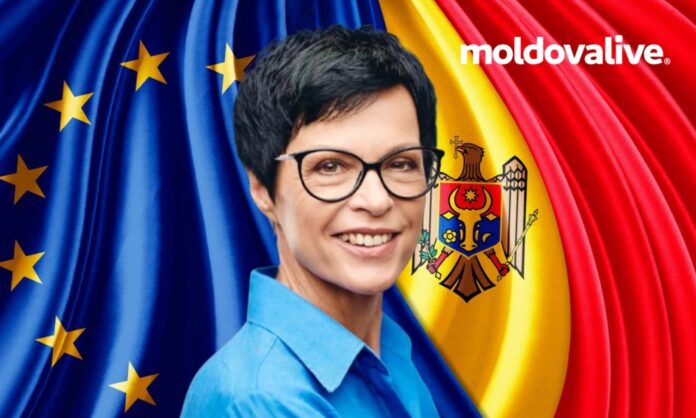The EU Enlargement Commissioner Marta Kos said that the European Union is considering whether to continue Moldova’s accession process separately from Ukraine’s, as Hungary continues to block Ukraine’s EU bid, Radio Europa Libera reports.
During an interview on April 28 in Prague, Kos said she “cannot rule out a decoupling” of the two countries as early as June, when the EU will take further enlargement decisions.
“We are already discussing with member states what steps to take because none of them oppose opening the first group of negotiating chapters with Moldova,” Kos said, emphasizing that Hungary is blocking only Ukraine’s accession.
So far, the EU has treated Moldova and Ukraine as a pair in the enlargement process. Ukraine applied for membership in February 2022, shortly after Russia’s full-scale invasion. Moldova submitted its application soon afterward.
In 2023, all 27 EU member states agreed to open accession negotiations with both countries. However, they have yet to open any negotiating chapters. Hungary continues to block Ukraine’s progress, citing demands to strengthen the rights of the Hungarian minority in western Ukraine. Since EU enlargement decisions require unanimity, Hungary effectively holds a veto.
Kos noted that decoupling candidates is not unprecedented. For example, in September 2024, the EU began accession negotiations with Albania while postponing talks with North Macedonia due to its unresolved bilateral issues with Bulgaria over minority rights.
FOR THE MOST IMPORTANT NEWS, FOLLOW US ON TWITTER!
Could Moldova Join by 2030?
Marta Kos, who became enlargement commissioner in December 2024, said Moldova could potentially become an EU member by the end of her mandate in 2029.
“If we don’t have any new member states during the current European Commission, it will be seen as a failure,” Kos said.
She expressed confidence that Albania and Montenegro—the most advanced Western Balkan candidates—could join the EU within three to four years. She also praised Moldova’s progress: “Moldova is truly the model pupil among candidate countries. They fully embrace this historic opportunity,” she said. “Accession for Moldova is a peace project. They want to join a community of values and democracy and are doing everything to succeed.”
Kos criticized Hungarian Prime Minister Viktor Orbán for politicizing Ukraine’s accession. Hungary even held a non-binding referendum on Ukraine’s membership, with Orbán’s Fidesz-led government opposing it.
“Ukraine has done enough,” Kos said. “I speak from experience—we facilitated dialogue between Hungary and Ukraine. Ukraine has agreed to meet all of Hungary’s demands, but Hungary continues to raise new objections.”
What About Georgia?
Regarding Georgia’s stalled EU candidacy, Kos said it might be time to cautiously resume contact with the government in Tbilisi.
Following the October 2024 elections, which international observers criticized for irregularities, and the adoption of controversial laws such as the Russian-style “foreign agents” bill, the EU froze Georgia’s candidate status. It also suspended financial support, reintroduced visas for diplomatic passport holders, and cut off high-level contacts.
“We decided to stop official dialogue,” Kos said. “But we still talk to many non-candidate countries. For example, despite Turkey’s accession process being frozen since 2019, we’ve resumed high-level discussions on the economy and migration.”
As for Georgia, Kos advised caution: “We should perhaps start with lower-level contacts and then explore how to proceed without endorsing the government’s undemocratic actions,” she said.
Would you like this formatted for publication, or do you need a shortened version for a press release or newsletter?


